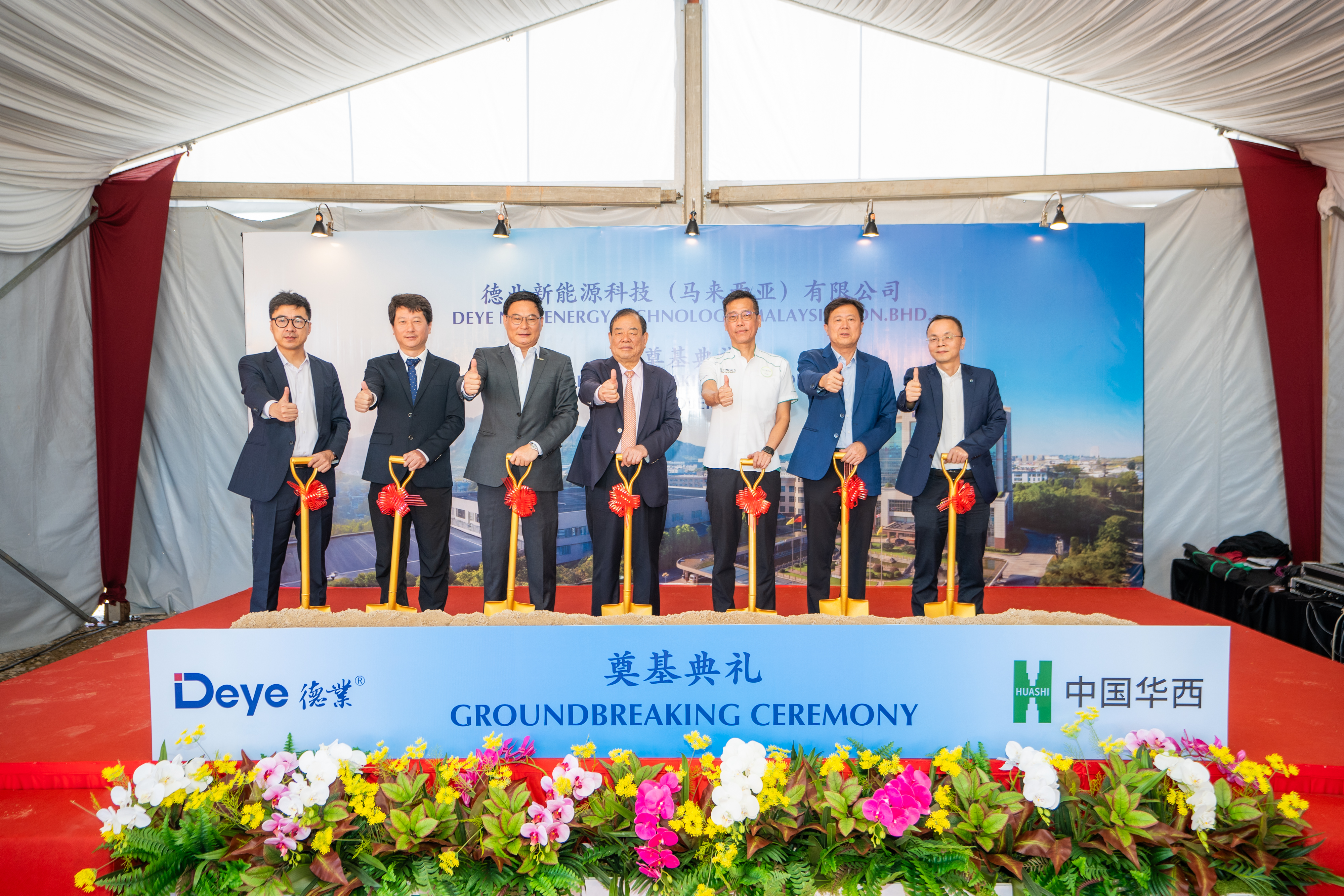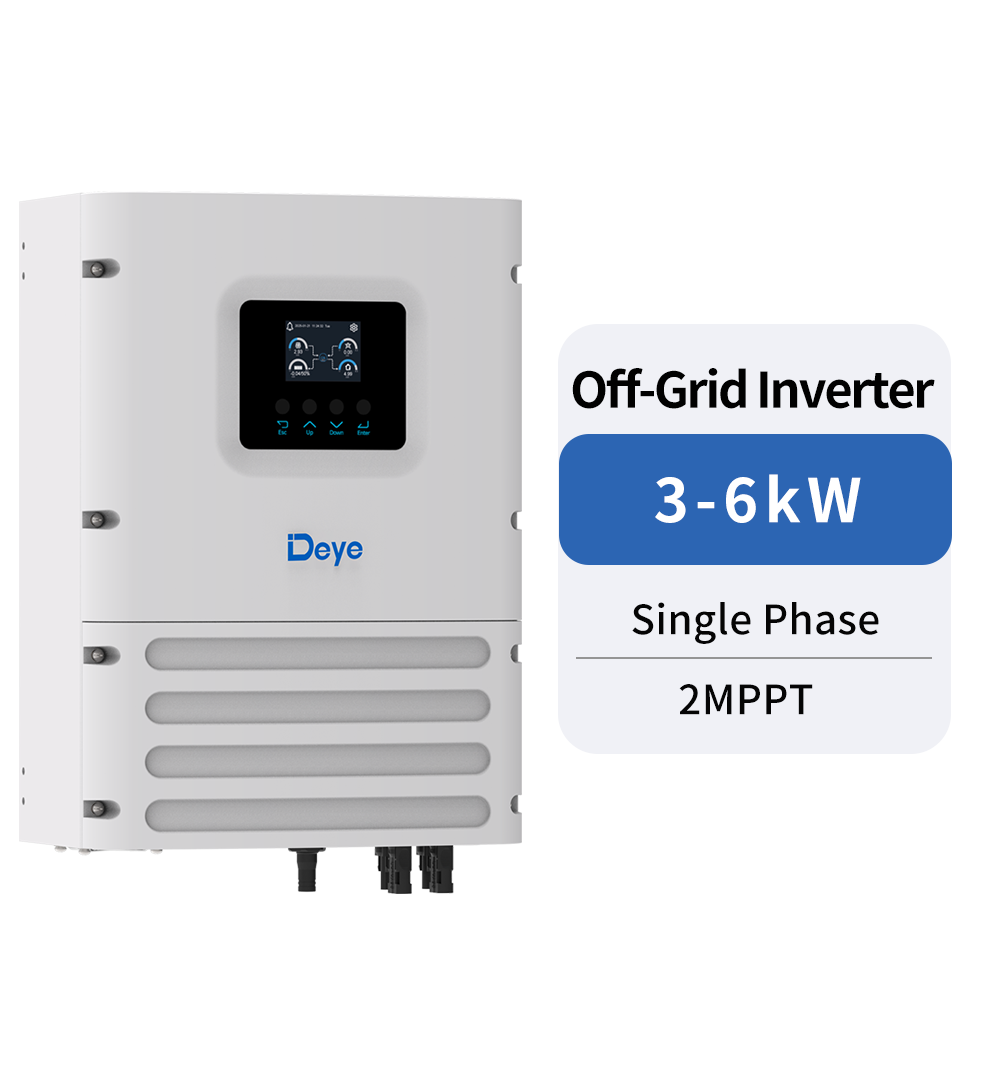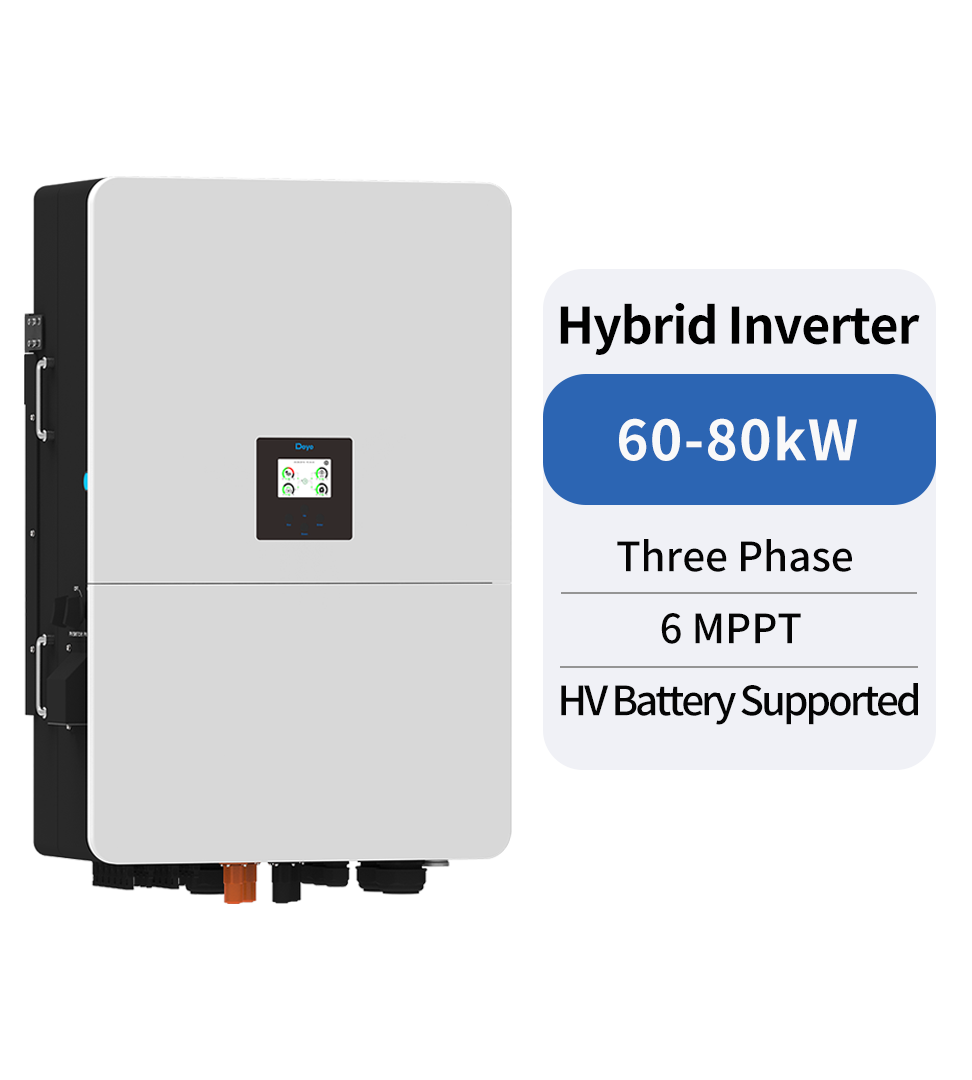Technical Topics
How to find the better string inverter for your home
String inverters are an ideal solution for residential solar systems. It is easy to install and requires minimal maintenance. This type of system is also very affordable. However, inverters are not suitable for large or complex solar arrays or for those with a small number of panels. Additionally, these systems require additional equipment to read the inverter and are not recommended for low output power solar systems. This article will explain how to find the better inverter for your home.
-g03-1phase-deye.偏侧-2.png)
String inverters consist of two main power blocks. The 1st power block is a DC/DC converter. It converts the variable string output into a high voltage DC link. A three-phase DC/DC converter also operates in this stage. The second block converts the DC link voltage to mains voltage. Detailed block diagrams can be found on TI's string inverter applications page. Once you have selected the right inverter for your needs, you can start looking for the right inverter part.
In addition to its benefits, String inverters also have certain limitations. Its max. voltage and max. current are limited. To ensure good operation, the voltage must not exceed the max. allowable level of the inverter. Furthermore, the inverter must also be able to operate in high temperature areas. To maximize its performance, it must be compatible with locally built code. For example, the National Electrical Code limits the max. allowable voltage to 600V for more residential systems, but has higher usage in Europe and Asia.
To ensure that a String Inverter works for your home, it is important to choose the right voltage. The output voltage must be within the max. input voltage and the min. output voltage. You should also ensure that the max. output voltage does not exceed the max. output power of the inverter. The inverter must also be compatible with the max. and min. currents of your electrical system. You can then choose the better option for your needs.
A string inverter is a series of solar panels connected to a single inverter. The tables are connected in a chain and will only work if one is working fine. So a String Inverter must be capable of high output voltage to be effective. In other words, a high input voltage inverter must be able to handle high currents. If the control panel does not work well, the whole system will be compromised.
Smart inverters are a great choice for residential solar systems. It is an excellent choice for many residential and commercial applications. It has the advantage of reducing the number of electronic devices on your roof and offering more flexibility. In fact, one String Inverter can handle eight solar panels. These units are also very compact. They are ideal for utility and industrial scale solar installations. If you are looking for a string inverter, you should consider the price of the inverter.
Single phase wire inverter is the ideal choice for residential solar systems. The US version has three MPPTs and a switching frequency of 30K Hz. Its multiple communication methods are useful for rooftop solar systems and are compatible with different roof orientations. In addition, the US version of the Solis single-phase string inverter has a built-in MLRSD generator and revenue-grade meters.
Deye String Inverter is a good choice for solar power system. They are more reliable than standard inverters and can be used in many applications. Most inverter types can be grouped together for better efficiency. The more commonly used type is two-way. The latter allows energy to be stored in battery packs. Its bidirectional nature means it can use energy stored in the grid or electric vehicle.
String inverters are a combination of multiple inverters. String inverters are a great choice if you have several solar panels on your roof. They provide max. capacity despite low prices and are ideal for max. solar energy use in residential environments. These inverters are a great way to save money on electricity while still making the more of your money. When you install a string inverter, be sure to follow the manufacturer's recommendations.
PREV:Benefits of hybrid inverter
NEXT:Grid Interactive Inverters and Hybrid Inverters
-g03-1phase-deye.偏侧-2.png)
String inverters consist of two main power blocks. The 1st power block is a DC/DC converter. It converts the variable string output into a high voltage DC link. A three-phase DC/DC converter also operates in this stage. The second block converts the DC link voltage to mains voltage. Detailed block diagrams can be found on TI's string inverter applications page. Once you have selected the right inverter for your needs, you can start looking for the right inverter part.
In addition to its benefits, String inverters also have certain limitations. Its max. voltage and max. current are limited. To ensure good operation, the voltage must not exceed the max. allowable level of the inverter. Furthermore, the inverter must also be able to operate in high temperature areas. To maximize its performance, it must be compatible with locally built code. For example, the National Electrical Code limits the max. allowable voltage to 600V for more residential systems, but has higher usage in Europe and Asia.
To ensure that a String Inverter works for your home, it is important to choose the right voltage. The output voltage must be within the max. input voltage and the min. output voltage. You should also ensure that the max. output voltage does not exceed the max. output power of the inverter. The inverter must also be compatible with the max. and min. currents of your electrical system. You can then choose the better option for your needs.
A string inverter is a series of solar panels connected to a single inverter. The tables are connected in a chain and will only work if one is working fine. So a String Inverter must be capable of high output voltage to be effective. In other words, a high input voltage inverter must be able to handle high currents. If the control panel does not work well, the whole system will be compromised.
Smart inverters are a great choice for residential solar systems. It is an excellent choice for many residential and commercial applications. It has the advantage of reducing the number of electronic devices on your roof and offering more flexibility. In fact, one String Inverter can handle eight solar panels. These units are also very compact. They are ideal for utility and industrial scale solar installations. If you are looking for a string inverter, you should consider the price of the inverter.
Single phase wire inverter is the ideal choice for residential solar systems. The US version has three MPPTs and a switching frequency of 30K Hz. Its multiple communication methods are useful for rooftop solar systems and are compatible with different roof orientations. In addition, the US version of the Solis single-phase string inverter has a built-in MLRSD generator and revenue-grade meters.
Deye String Inverter is a good choice for solar power system. They are more reliable than standard inverters and can be used in many applications. Most inverter types can be grouped together for better efficiency. The more commonly used type is two-way. The latter allows energy to be stored in battery packs. Its bidirectional nature means it can use energy stored in the grid or electric vehicle.
String inverters are a combination of multiple inverters. String inverters are a great choice if you have several solar panels on your roof. They provide max. capacity despite low prices and are ideal for max. solar energy use in residential environments. These inverters are a great way to save money on electricity while still making the more of your money. When you install a string inverter, be sure to follow the manufacturer's recommendations.
PREV:Benefits of hybrid inverter
NEXT:Grid Interactive Inverters and Hybrid Inverters
Share
Product recommendations
news recommendations
-

-
 Green Industry, Bright Future: Deye Distributor Summit – Dubai 2025 Concludes Successfully
Green Industry, Bright Future: Deye Distributor Summit – Dubai 2025 Concludes SuccessfullyIn November 2025, Deye Group successfully hosted the “Green Industry, Bright Future—Deye 2025 Dubai ...
-
 Deye’s Malaysia Johor Manufacturing Base Officially Breaks Ground — A Key Step Forward in Its Globalization Strategy
Deye’s Malaysia Johor Manufacturing Base Officially Breaks Ground — A Key Step Forward in Its Globalization StrategyOn October 2, 2024, Deye Group (hereinafter referred to as “the Company”) held a groundbreaking cer...

 China - 简体中文
China - 简体中文 Global - English
Global - English Brazil - Português
Brazil - Português Netherlands - Dutch
Netherlands - Dutch Italy - Italiano
Italy - Italiano Germany - Deutsch
Germany - Deutsch Spain - Español
Spain - Español France - Français
France - Français Vietnam - Tiếng Việt
Vietnam - Tiếng Việt Poland - Polski
Poland - Polski Australia - English
Australia - English


